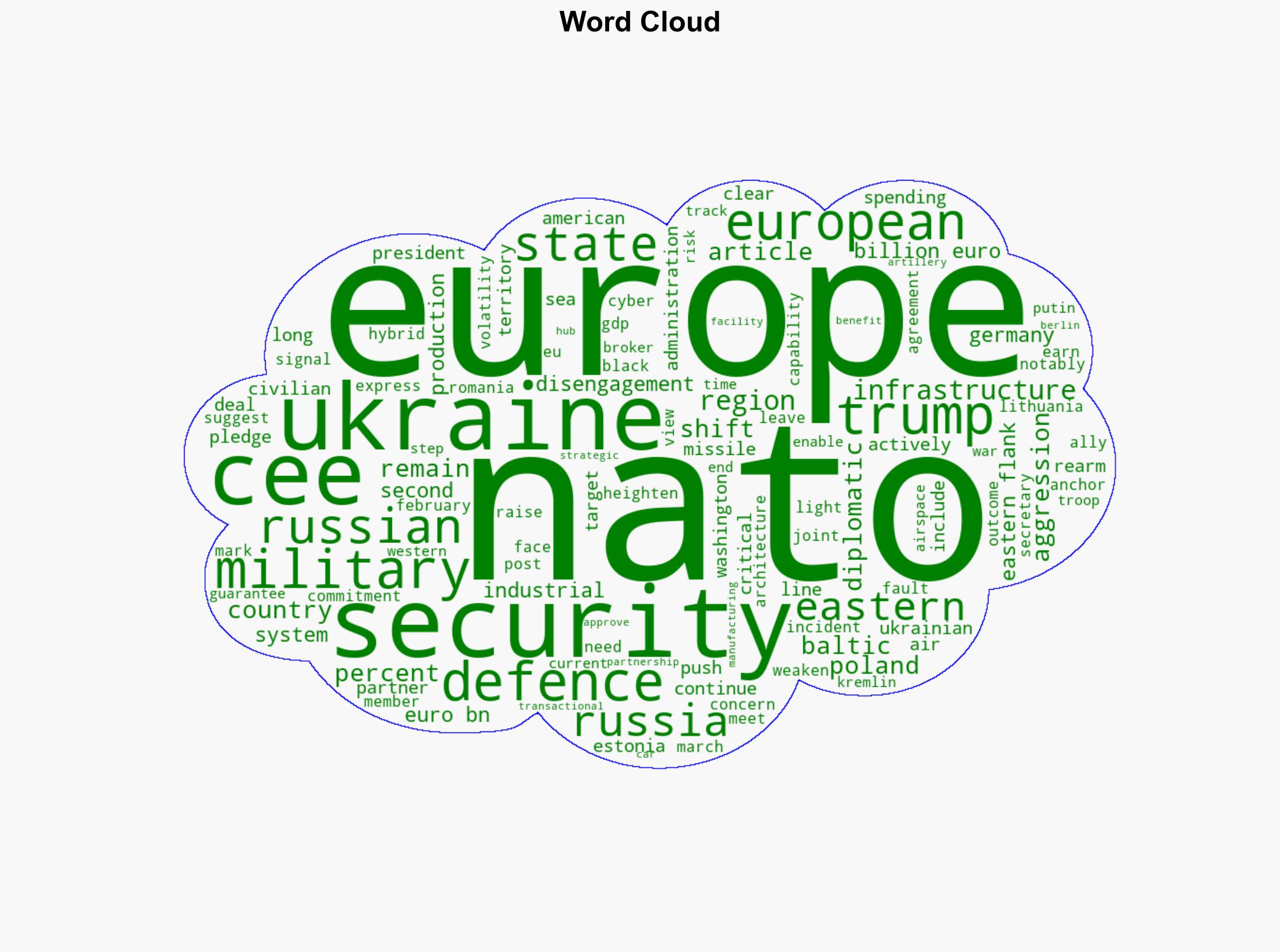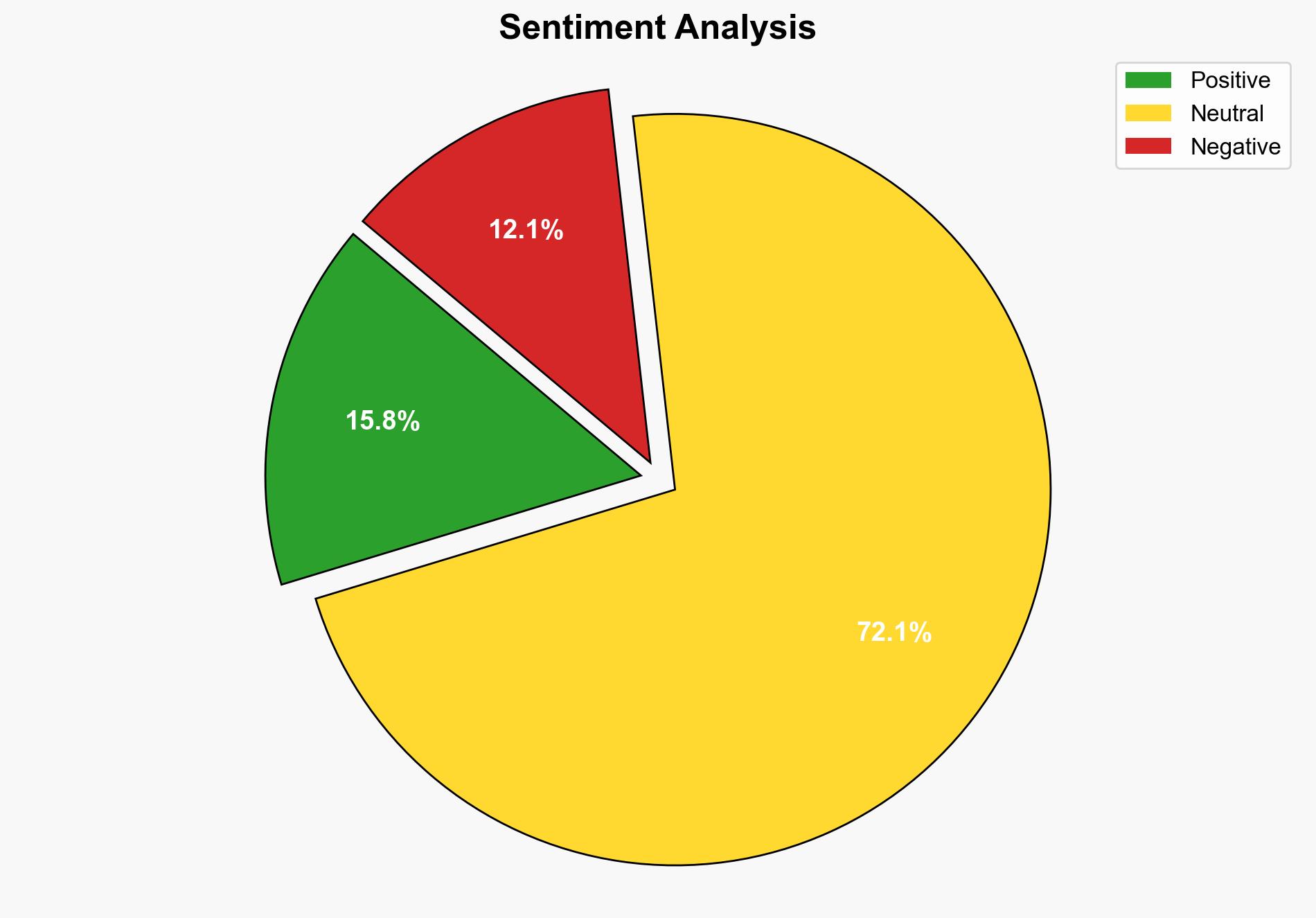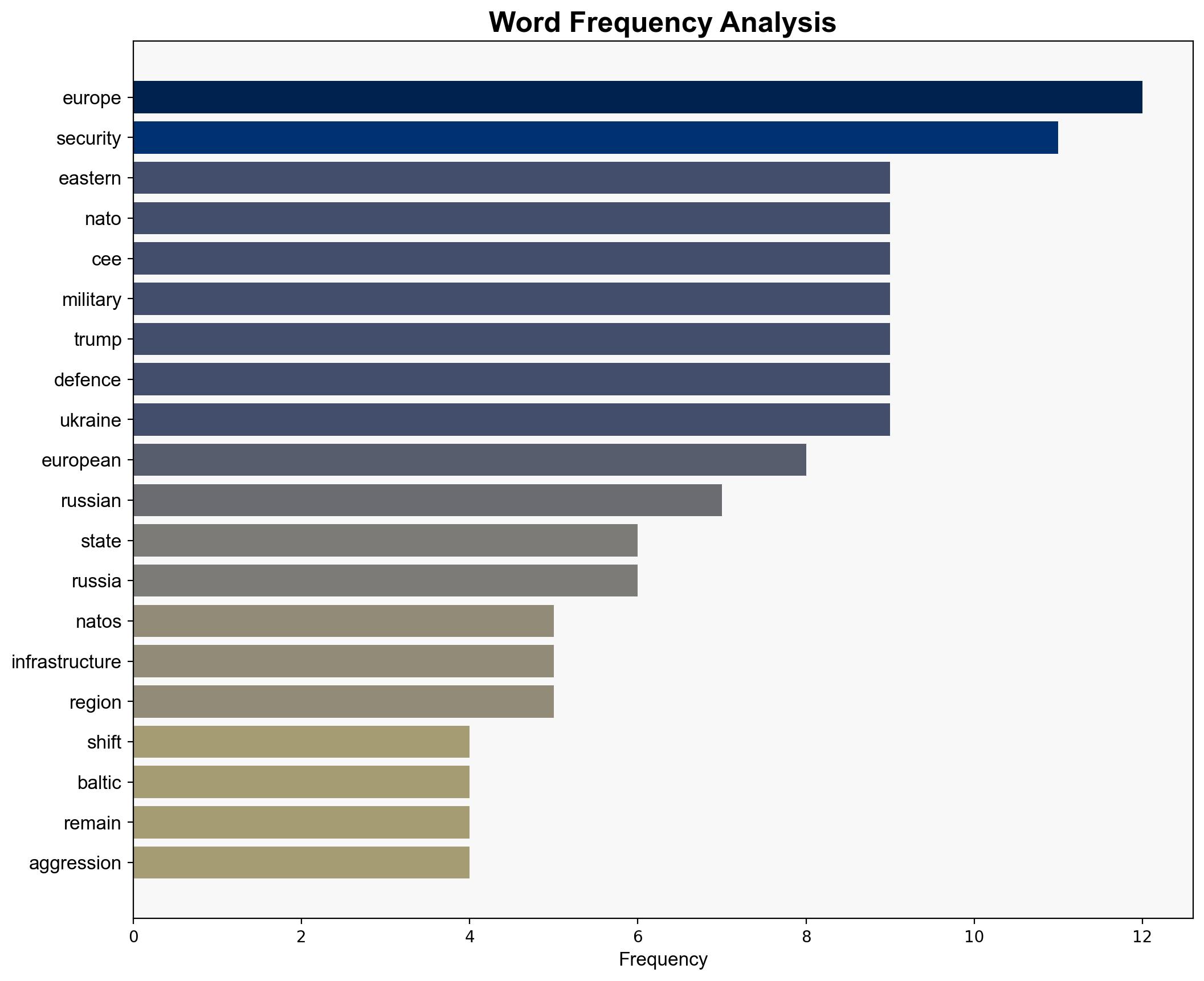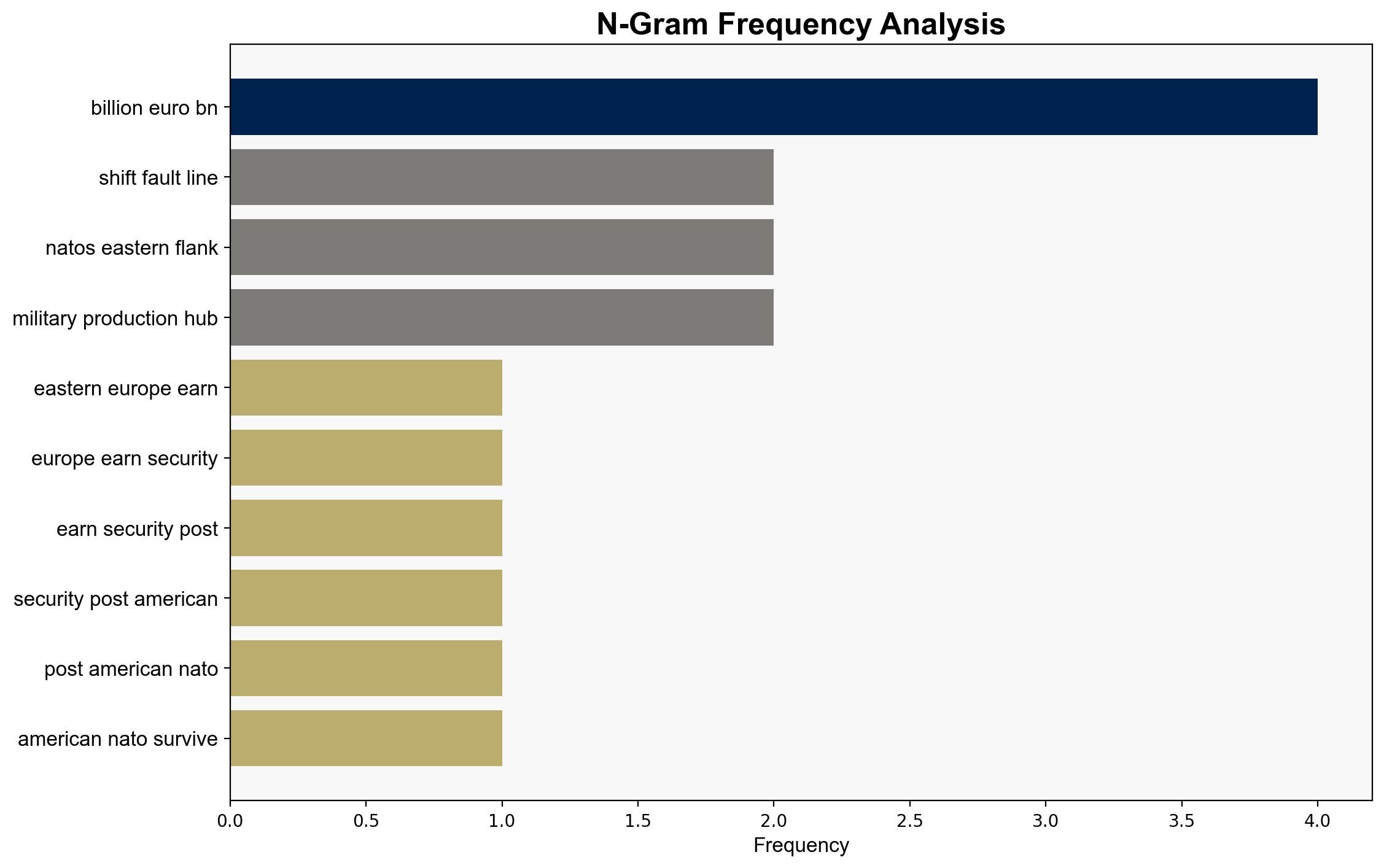Eastern Europe must earn its security in a post-American NATO – Al Jazeera English
Published on: 2025-07-30
Intelligence Report: Eastern Europe must earn its security in a post-American NATO – Al Jazeera English
1. BLUF (Bottom Line Up Front)
The strategic judgment indicates a moderate confidence level that Eastern Europe must enhance its self-reliance within NATO due to potential shifts in U.S. foreign policy focus. The most supported hypothesis suggests that Eastern European nations will need to increase defense spending and regional cooperation to deter Russian aggression. Recommended actions include bolstering regional defense capabilities and diversifying security partnerships.
2. Competing Hypotheses
Hypothesis 1: Eastern European countries will successfully adapt to a reduced U.S. presence in NATO by increasing their defense spending and regional cooperation, thereby maintaining security against Russian threats.
Hypothesis 2: Eastern European countries will struggle to compensate for a diminished U.S. role in NATO, leading to increased vulnerability to Russian aggression and potential geopolitical instability.
Using ACH 2.0, Hypothesis 1 is better supported due to recent commitments by NATO members to increase defense budgets and enhance military capabilities, as well as ongoing support for Ukraine. However, Hypothesis 2 remains plausible given historical reliance on U.S. leadership and potential challenges in achieving rapid military enhancements.
3. Key Assumptions and Red Flags
Assumptions include the belief that increased defense spending will effectively deter Russian aggression and that regional cooperation can substitute for U.S. military presence. A red flag is the potential overestimation of Eastern European countries’ ability to rapidly enhance military capabilities. Additionally, the assumption that U.S. policy will significantly shift away from Europe may not fully account for enduring strategic interests.
4. Implications and Strategic Risks
The primary implication is the potential for a security vacuum in Eastern Europe if U.S. commitment wanes, leading to increased Russian influence. Strategic risks include the possibility of a fragmented NATO, economic strain from increased defense spending, and heightened cyber threats targeting critical infrastructure. Geopolitical tensions could escalate if Eastern Europe fails to present a unified deterrent posture.
5. Recommendations and Outlook
- Encourage Eastern European nations to accelerate defense spending and capability development, focusing on cyber resilience and logistics.
- Promote regional security initiatives and partnerships beyond NATO to diversify security reliance.
- Scenario-based projections:
- Best: Eastern Europe achieves a robust defense posture, deterring Russian aggression.
- Worst: Fragmented NATO response leads to increased Russian influence and regional instability.
- Most Likely: Gradual enhancement of regional defense capabilities with continued U.S. involvement, albeit reduced.
6. Key Individuals and Entities
Donald Trump, Volodymyr Zelenskyy, Pete Hegseth, Mark Rutte
7. Thematic Tags
national security threats, cybersecurity, regional focus, defense policy, geopolitical stability





